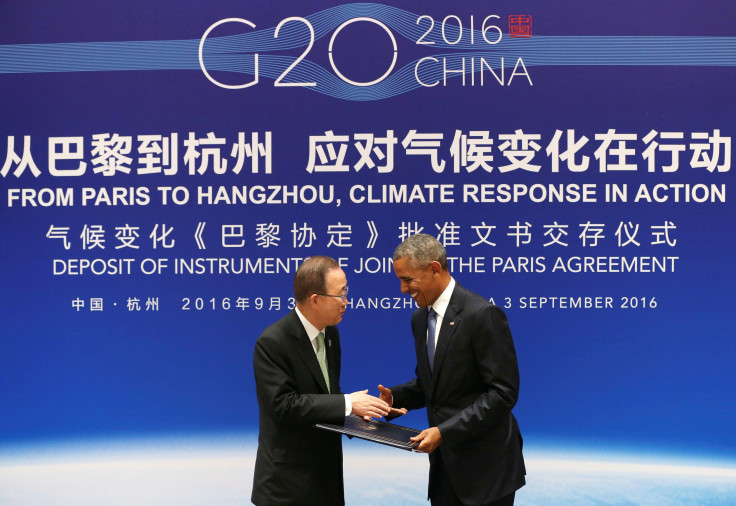Climate Change News: United Nations Urban Expansion Meeting Set To Begin

The United Nations is set to discuss the future of the world’s cities Oct. 17 amid concerns that rapid urban expansion will breach the limits set by the 2015 Paris Climate Agreement. More urban areas are expected to develop over the next 30 years than ever before, according to the scientific journal Nature. The scheduled meeting in Quito, Ecuador, will attempt to develop a framework to make those cities more sustainable. Scientists have voiced their concerns about a lack of representation at the meeting.
The conference, called Habitat III, will address the world’s “more people, fewer resources” crisis. The world will have an estimated one billion additional people by 2030, likely concentrated in cities, increasing demand for a finite supply of resources. More than half of the world’s population already live in the world’s urban areas, which emit 70 percent of the world’s greenhouse gases, consume 60 percent of global energy, and produce 70 percent of all its garbage. The meeting will attempt to develop a groundwork for dealing with the inevitable increase in transportation, pollution, climate change, and water-supply issues.
It’s all in the details. . countdown to #Habitat3 #NewUrbanAgenda See you in Quito! pic.twitter.com/x9PG3kySfF
— Habitat III (@Habitat3UN) October 11, 2016
Doing so will enable the world to “integrate all facets of sustainable development to promote equity, welfare, and shared prosperity,” said Dr. Joan Clos, Secretary-General of Habitat III. Most future urban growth will take place in less developed countries, furthering problems that stem from a lack of resources, according to the Population Reference Bureau.
Scientists will be largely absent from the meetings after the UN pulled an expert panel over concerns that it was too expensive, Nature reported. Conversely, scientists were the ones who directed the 2015 Paris Agreement to limit global warming below 2 degrees Celsius.
We need to look at #urbanization as a strategy for the prosperity and development of nations. #NewUrbanAgenda
— Joan Clos (@Joanclos) October 11, 2016
@Habitat3UN @UNHABITAT
Habitat III has laid out a skeleton of the New Urban Agenda it will discuss. Leaders called for five specific steps to stimulate growth and minimize environmental impact including the formation of a global urban support group, an increase in urban research funding, the spread of knowledge on the subject, support for interdisciplinary work, and improved access to science policy.
When the conference ends Oct. 20, the committee will not have made a legally binding document but will emerge with a declaration of intent for the future.
© Copyright IBTimes 2024. All rights reserved.





















